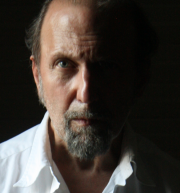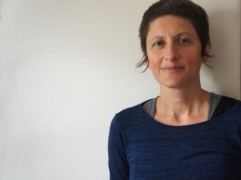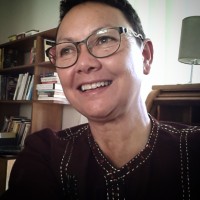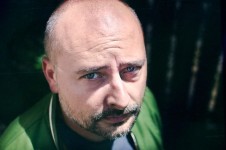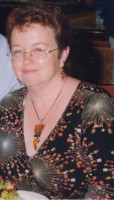Hoa Pham
 Hoa Pham is an author, playwright and psychologist. Her novella The Other Shore won the Viva La Novella prize in 2014. Her play Silence was selected as a text for VCE Drama in 2010 and has been performed at La Mama in Melbourne. It also toured throughout Victoria with the support of VicHealth. Hoa was awarded the Best Young Writer of the Year Award from the Sydney Morning Herald in 2001 for her novel Vixen. Hoa’s work has been published in numerous periodicals including HEAT, Griffith Review and TEXT Journal. She is also the founding editor of Peril Magazine of Asian Australian arts and culture.
Hoa Pham is an author, playwright and psychologist. Her novella The Other Shore won the Viva La Novella prize in 2014. Her play Silence was selected as a text for VCE Drama in 2010 and has been performed at La Mama in Melbourne. It also toured throughout Victoria with the support of VicHealth. Hoa was awarded the Best Young Writer of the Year Award from the Sydney Morning Herald in 2001 for her novel Vixen. Hoa’s work has been published in numerous periodicals including HEAT, Griffith Review and TEXT Journal. She is also the founding editor of Peril Magazine of Asian Australian arts and culture.
Excerpts from The Other Shore
My name is Kim Nguyen. I’m sixteen years old and my secret middle name is from a poem that means ‘good heart’ in Vietnamese. I have kept many things I see and hear to myself. This protects me, being a plain ordinary schoolgirl in uniform, a white ao dâi that is impossible to keep clean. I do not show off at school, because the pressure of the student competition and the ritual picking on the weakest students by the teachers was too much for me. I learnt about competition on the first day of high school from my best friend, Lien, who told me not to get angry at the teachers’ jibes about me being the ugly sister. ‘They will be silent after they receive a gift,’ she told me. This was my first encounter with corruption—a corruption everyone expected.
In our house many people died, but all of Việt Nam bleeds ghosts from the wars. When I was growing up I would see other ghosts, like Americans, and would practise my English with them. Sometimes they would be wary, other times not. I have gradually learnt not to be afraid of strangers.
My family lived south of Hoan Kiem lake. When I closed my eyes at night I heard the steady whirr of traffic going by. Hà Nội only sleeps from midnight to four am. In the early morning old women like my grandmother would do tai chi on the shore of the green lake. At four am goods would be brought to the markets and to the noodle hawkers on the street. Then the traffic would ramp up and tourist touts and beggars would take to the lake, while the more affluent would lunch and eat ice cream.
In the middle of the lake is the One Temple Pagoda, fierce with a tiger guarding it, a constant reminder of King Le Loi and the legend of the turtle that carried his sword away.
To most people I am no one. To Bà, my grandmother, I was someone special that kept her secrets.
*****
I was awake and dressed at four the next morning when the driver knocked on my door.
Huế was just beginning to wake up. The pho sellers were assembling their wares and the roads were almost empty. The dawn was mild and I was grateful for the thermos of tea that the driver thoughtfully provided us with.
It only took ten minutes of driving for us to reach the countryside outside Huế. Trees and greenery dominated and chickens ran across the road. I spotted a turn-off sign for Chùa Hương and knew we were close.
We came across the new highway suddenly in an open clearing. The road was newly asphalted and came to a halt at a large roped-off pit. Already two labourers were standing around, smoking. The driver parked and we got out, catching a glimpse of the pink dawn edging over the horizon.
Bác Phúc approached the workmen who straightened up and only surreptitiously glanced at me. ‘Are the novices from the temple here yet?’
One of the workmen shrugged.
Bác Phúc gestured to me. ‘Come have a look.’ He didn’t have to tell me to not touch anything.
‘The geomancer tells me that the discoloured soil here is decomposed bodies.’
I glanced into the pit. Mud and water oozed and I glimpsed shards of bone embedded in the sides of the pit.
‘Mass grave. Why did you bring a woman out here?’ one of the workmen said.
‘She’s a psychic. She’s part of the reburial team.’
The workmen’s eyes widened.. Then they nodded in understanding as the sound of a moped cut into the quiet of the dawn. Pulling up at the site was a brown-robed abbot and a novice robed in grey. The novice was holding onto ceramic pots, precariously bundled together, for the remains of the bones.
I bowed to the abbot, who smiled at me and Bác Phúc. ‘Thank you for coming,’ he said to us gently. ‘These disturbed souls have been troubling us greatly. We have been waiting for you.’
The novice set up incense on a little mound away from the pit. ‘I can assist you in finding the descendants of these men and women if they are from around here.’
The workmen holding small hand shovels bowed to the abbot, then jumped into the pit. Too soon I was presented with a shovel full of mud and earth from which shards of bone were poking out. I took off my gloves and gingerly reached out to touch the protruding bone.
A scream. A bolt of pain lanced through my insides. Then wailing. She had been abandoned, defiled, and murdered. Her family could not find her. They offered outdoor offerings to the lost souls but could not honour her at the altar.
‘She lived in the village not far from here. She was killed by Americans.’ I could not bring myself to say what had happened to her before her death. So I began describing the scenery around the village, the hills that backed her family’s farm and the closeness of Chùa Hương . She had three brothers and two sisters.
The abbot listened gravely to my babbling, then produced a notebook from a bag by his side. ‘I think I know which family this is,’ he said and motioned for the novice to bring over one of the reburial urns. The remains were put in the jar and the abbot murmured some instructions to the novice.
Bác Phúc watched approvingly and smiled at me for the first time. Putting a hand over my stomach from the phantom pains I tried to smile back, but instead found myself fighting tears.
Bác Phúc came over to my side with the thermos of tea. ‘Have a rest for a few minutes my dear, ‘ he said. Clumsily I walked away from the pit and sat on the car bonnet. I crossed my arms, hiding my head in my hands to conceal my shame from the men.
The hours passed by in a blur. I was hit by the pain and humiliation of death again and again. Bác Phúc began to work alongside me, his face stoic. He would squat down next to the remains, his face a frown, and close his eyes. Then he would tell the abbot what he saw.
With the help of the abbot we were able to identify nine people from nearby villages. Then I was presented with another mound of mud with bones protruding from the muck. I was reminded of the bones of a chicken after the slaughter as I braced myself for the impact of touching them.
The shock comes like a pistol shot to the back of the head. I am drenched in fear, standing in line, waiting. My mother stands next to me clutching my hand, sweating. I had been told to be quiet, and this time none of my cheekiness asserts itself; even the adults are quietly standing in the darkness down in the basement of the school.
Then a door opens and men in black come down the stairs with guns. With frightening efficiency they make us kneel on the concrete floor. A gun muzzle glints in the dim light and then a crack. My teacher Long falls forward. Someone screams.
Panic! . . . and Ma cowers to the ground, covering me with her body. More cracks and the smell of blood. Then a thunderclap in my ear. Mum goes limp above me and I am squashed under her weight. I wriggle and blinding pain shoots up my leg. Then I fall . . .
A child! The National Liberation Front had murdered families in cold blood, just like the Americans and the ARVN had. I recoiled from the knowledge. Opening my eyes I saw Bác Phúc looking at me with concern.
‘A child . . .’ I stammered.
‘Where did they come from?’ Bác Phúc asked, his stare fixed to my face.
‘South.’ The word was shaken out of me.
‘I see.’ Bác Phúc gestured at the workmen and the area of mud that the geomancer indicated was dug up and thrown to the side of the road. The abbot knelt by my side and I turned to him.
‘They aren’t honouring the dead . . . ’
The abbot looked at me with sorrowful large brown eyes. ‘These are Southern dead. Your colleagues are from the government.’
A chill ran down my spine as I realised the political implications of what I had seen. ‘They will still haunt the road . . .’ I murmured.
The abbot paused for a moment, then looked away. ‘In the eyes of the Buddha there are no political sides or ideology. We will look after them.’ He rose suddenly to his feet and Bác Phúc approached, indicating I should get back to work.
Fucking gooks. Never let a man sleep. Have to get out of this hellhole, stay alive for three more days then out of here. Never again.
‘American,’ I said. I wanted to sit down and cry and never get up again. The workmen heaped the soil and remains on the side of the road. The novice went away on his moped and came back with wooden boxes lined with red paper. The American remains were placed in the boxes and put in the back of our car.
‘The Americans like it when we can return remains to them,’ Bác Phúc said neutrally. The labourers returned to work and Bác Phúc clambered back into the pit.
Exhausted and covered with mud I sat down on the side of the road. I imagined I was covered with the bloody remains of the victims I had seen. Even the American was treated with more respect than the southern ers. It made no sense. Surely the souls from the south would haunt the road too?
Shivering, I unwillingly flashed to what I had seen of the American’s feelings. He had died slowly, suffering the same way our people had.
‘We will pray for them,’ the abbot said softly in my ear. I turned to the wise man standing impassively by my side. The novice had lit more incense and begun a quiet chant a few steps away from the open grave site. The sun had risen and the heat of the day was making itself felt. I glanced at Bác Phúc but his eyes were closed in trance talking to the geomancer about what he saw.
‘Politics keep men divided,’ the abbot said. ‘But we all suffer no matter which side we are on. After we die there are no distinctions. You are not like him. Your spirit is still young. If you need counsel please come to Chùa Hương and ask for me.’ The abbot left my side as if he had said nothing of import and returned to the pit.
Bác Phúc had identified more southern soldiers and the heap by the side of the road grew. I sipped a cup of tea, listening to the chant for the dead and then the sound of the bell from the novice. Its sound returned me to memories of my own temple in Hà Nội. A moment of peace came over me.
Then I began to cry for what I had lost.
(These excerpts are from page 1-2 and page 42-56 The Other Shore, Seizure, 2014)

